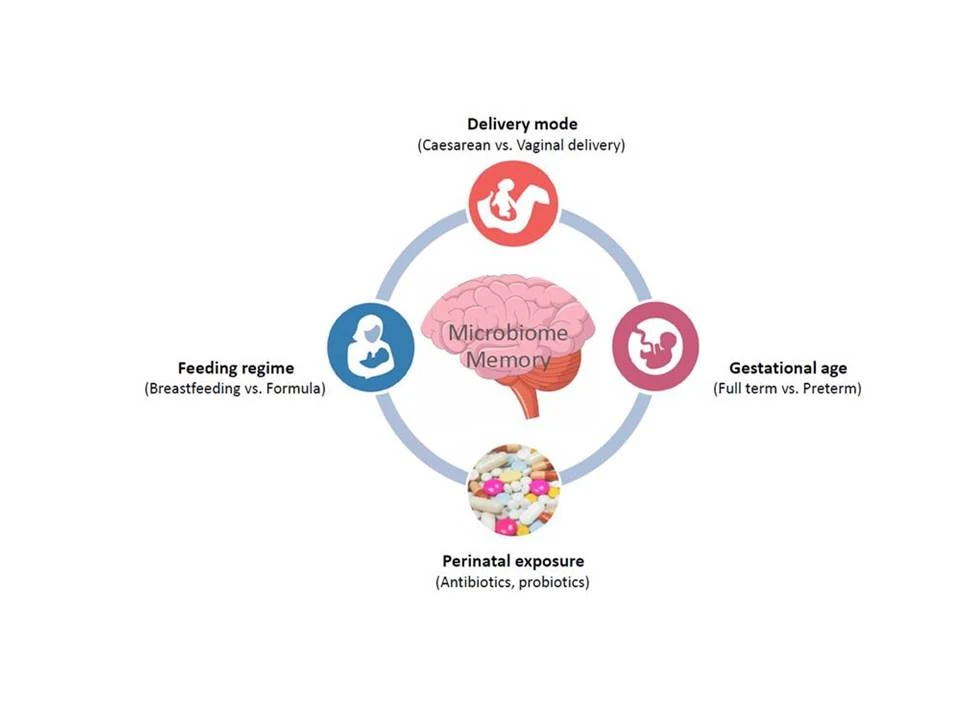News
Microbiome Memory

Microbiome Memory
Perinatal Factors Affect The Gut Microbiota Up To Four Years After Birth
APC Microbiome Ireland researchers have shown the existence of a ‘Microbiome Memory’, proving the importance of early life events on later life microbiota.
Prof. Catherine Stanton and her lab have worked extensively in the area of infant health, nutrition and microbiome research and have been interested for many years in studying the gut microbiome of infants and uncovering the plethora of factors that impact the bacteria an infant acquires at birth and in early life. Given that early life events including delivery mode and prematurity result in changes to the microbiome, her research group was interested in the possibility of a “microbiome memory”, where early life events could leave lasting effects on the gut microbiome.
In this recent work by Fouhy & Watkins et al., published in Nature Communications, the researchers studied the development of the microbiome through the first four years of life. They asked the following pertinent questions: Is it possible that when you are born i.e. full term or preterm (<35 weeks gestation) or how you are born (Caesarean or vaginally delivered), could result in lasting effects on the gut microbiome?
This study confirms the continued development and maturation of the gut microbiota during the initial years of life. The research identified an increase in gut microbiota diversity with increasing age to four years, with the greatest significant difference found between infants at years one and year four. The results showed that gestational age at birth and delivery mode continued to impact diversity during the first four years of life, with those born full term having had the highest diversity at one, two and four years of age, while preterm infants had lower diversity.
“Our results show that the gut microbiome has a microbial memory of early life events and that gestational age at birth continues to imprint on the microbiome at four years of age. This is extremely important as now worldwide over 10% of babies are born prematurely annually. Therefore, we must consider the sustained impact of prematurity on the gut microbiome, as it may have significant implications for health” said Prof. Catherine Stanton, leader on the research.
This research was funded through Science Foundation Ireland Research Centre grant to APC Microbiome Ireland and recently published in Nature Communications:
Perinatal factors affect the gut microbiota up to four years after birth Fiona Fouhy, Claire Watkins, Cian J. Hill, Carol-Anne O’Shea, Brid Nagle, Eugene M. Dempsey, Paul W. O’Toole, R. Paul Ross, C. Anthony Ryan & Catherine Stanton Nature Communications volume 10, Article number: 1517 (2019)
See also Behind the Paper blog post from Prof Catherine Stanton


